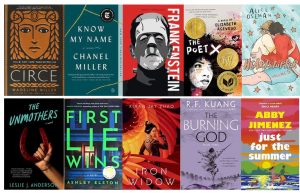When I began to see the vague status updates on Facebook addressing the death of a Concordia student I didn’t know, I quickly figured out that it was a suicide. With any other young person’s death, I would’ve seen a link to a charity for cancer research, a Facebook event for a 5K fundraiser, or at least an explanation. When it’s a suicide, it’s almost always just “a tragedy.” Thoughts and prayers for friends and family. Social media presents death at the hands of mental illness as something shameful for the survivors by avoiding the matter entirely.
When a young person at Concordia makes the decision to take their own life, I have watched, time after time, a community that largely stays silent. There are brief whispers in hallways, heads shaking, and vague explanations given by our own faculty members. When Lucas Anderson lost his life to a heroin overdose in the spring of 2016, I was allowed to leave rehearsal half an hour early to attend his funeral. Everyone in the room politely ignored the fact that he had issues with drug addiction. No one openly acknowledged the fact that he had relapsed. I spoke at his memorial service, which was advertised widely through Facebook. After that, he quickly left the collective consciousness at Concordia. In some ways, I feel like I was never completely allowed to grieve.
My own depression, anxiety, and struggles with disordered eating weren’t anything new when I enrolled at Concordia. I had already been undergoing extensive cognitive-behavioral therapy for years prior to my engagement with Concordia, and, having been sold on the image of an inclusive, wholesome community, I anticipated a culture of acceptance and mutual understanding regarding mental illness. I wanted to have conversations about the reality of being a queer, mentally ill student pursuing a career in the humanities. Unfortunately, I was often met with staunch indifference when I finally found the courage to address my failing mental faculties—more than once, severely self-destructive behavior interfered with my ability to achieve as a student. The sparse appointments I attended with a variety of therapists at Concordia’s counseling center were a series of disappointments when the clinicians I met failed to fully relate to me or even express empathy. The following quotes are a sampling of the rhetoric I encountered from faculty members after attempting to open up about my own disorders:
“Is this new for you?” “But you always seem so happy.” “Your mental health isn’t an excuse.”
The last one kept me up at night. Was it my fault for being like this? Were the chemical imbalances in my brain something I had deliberately exacerbated? Was I just looking for attention? Was I broken?
Befriending other students who were entrenched in their own battles with mental illness saved me on countless occasions. When we opened up the dialogue regarding Concordia’s seeming inability to offer us the tools we needed, I could only think, “Oh my God, I thought I was the only one.” I became close with people affected by bulimia, depression, social anxiety, alcoholism, and drug addiction. Interestingly, they were the kindest people I met on campus. The truth is that mental illness is really just a sane reaction to an insane world.
I am tired of watching the Concordia community paint this portrait of suicide as a random, senseless occurrence while simultaneously failing to provide the resources imperative for the survival and livelihood of mentally ill students. The reality is that the preventative measures currently available to students at Concordia are inadequate. It’s an institution built by and for able-bodied, neurotypical, heteronormative, cisgender white people of wealth. I no longer have any illusions about that.
It may be a bold assertion, but it’s one I believe: we can’t keep asking how these deaths happen until we acknowledge that we allow them to happen.
I am left wondering—would Lucas Anderson be alive if I had asked him to hang out hours before he relapsed? Would Eli Johnson still be attending class if someone had asked him, sincerely, how he was feeling? I’m alive because I was given the opportunity to become involved with professional mental health clinicians. I had access to the prescription drugs that helped me function. I had the privilege of belonging to a family that had the resources to save my life on multiple occasions. I was extremely lucky. I wonder about the students who aren’t afforded the same chance.
I ask the faculty, staff, and student body of Concordia to assess the way they think and act in regards to mental illness. My heart is with Concordia in the wake of Eli Johnson’s death.
David Jensen is a 2016 graduate of Concordia College.







Be First to Comment